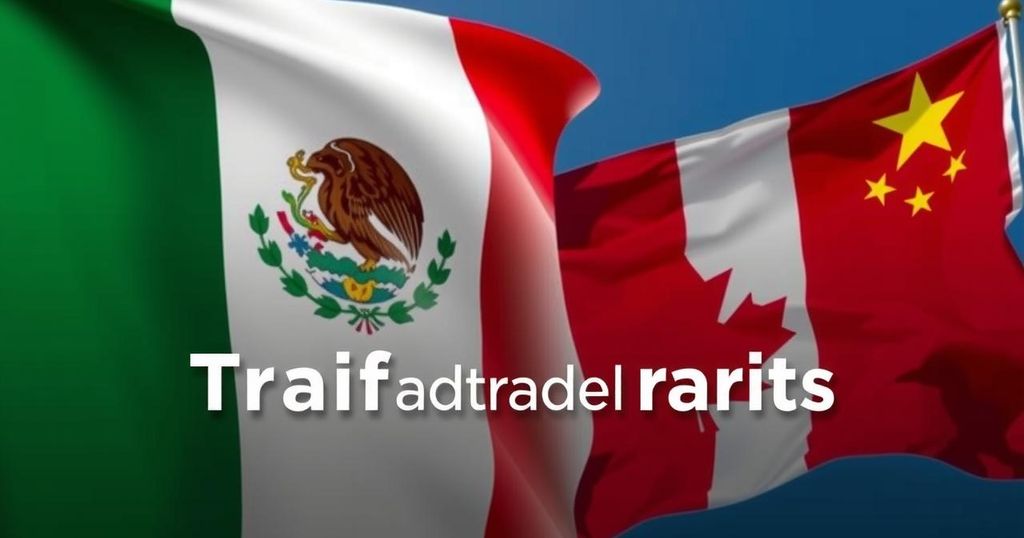President-elect Donald Trump has threatened to implement substantial tariffs on imports from Mexico, Canada, and China, beginning January 20. The proposed 25% tariff on goods from Mexico and Canada is positioned as a response to illegal immigration and drug trafficking, while China faces an additional 10% tariff until it curtails drug shipments. This approach aligns with Trump’s previous trade strategies but raises concerns about inflation and potential trade wars.
President-elect Donald Trump announced an aggressive tariff strategy aimed at Mexico, Canada, and China, threatening to impose a substantial 25% tariff on all imports from Mexico and Canada starting on January 20. He framed this action as a response to ongoing issues of illegal immigration, drug trafficking, and crime. Trump emphasized that these tariffs would remain in place until these issues are resolved. Furthermore, he indicated a 10% increase on existing tariffs for China, insisting that the country take decisive steps to stop illegal drug shipments, particularly fentanyl, into the United States.
Trump’s statements suggested a return to his administration’s previous approach of using tariffs as leverage against foreign nations, aimed at promoting domestic manufacturing and addressing trade deficits. However, tariffs inherently act as a tax on imported goods, affecting American consumers who ultimately pay the costs through increased prices. The Peterson Institute for International Economics has estimated that these tariffs could cost the average American household over $2,600 annually. Despite concerns over inflation, Scott Bessent, Trump’s Treasury secretary nominee, argued that tariffs could be managed to avoid adding to inflationary pressures.
Tariffs are government-imposed duties on imported goods designed to protect domestic industries by making foreign products more expensive. During his first presidency, Donald Trump utilized tariffs as a strategic tool to reshape trade relationships, a practice he has indicated he will amplify in his second term. The implications of extensive tariffs often include retaliatory actions from affected countries, which can escalate into trade wars and impact the broader economy. Economists generally caution that such measures can lead to higher consumer prices and inflation, challenging the initial goals of promoting domestic manufacturing.
In summary, President-elect Donald Trump’s proposed tariff strategy represents a significant escalation in his trade policy, particularly toward Mexico, Canada, and China. By threatening hefty tariffs, he aims to address illegal immigration and drug trafficking. However, the potential economic impact on American consumers and the risk of trade wars raises questions about the efficacy of such measures. Trump’s past experiences suggest that while tariffs can be employed as a negotiation tool, they often come with unintended consequences.
Original Source: www.cnn.com






